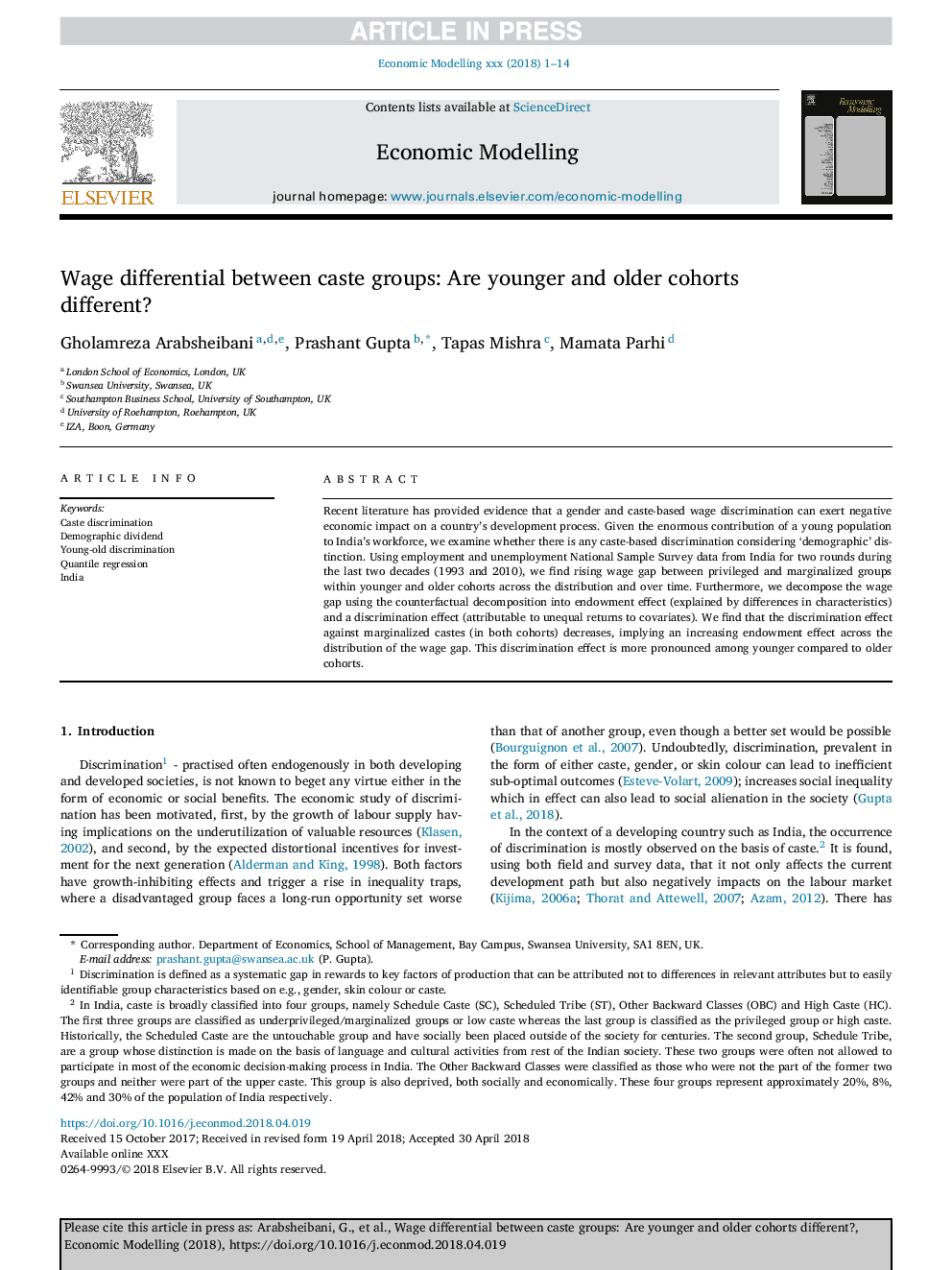| Article ID | Journal | Published Year | Pages | File Type |
|---|---|---|---|---|
| 8947963 | Economic Modelling | 2018 | 14 Pages |
Abstract
Recent literature has provided evidence that a gender and caste-based wage discrimination can exert negative economic impact on a country's development process. Given the enormous contribution of a young population to India's workforce, we examine whether there is any caste-based discrimination considering 'demographic' distinction. Using employment and unemployment National Sample Survey data from India for two rounds during the last two decades (1993 and 2010), we find rising wage gap between privileged and marginalized groups within younger and older cohorts across the distribution and over time. Furthermore, we decompose the wage gap using the counterfactual decomposition into endowment effect (explained by differences in characteristics) and a discrimination effect (attributable to unequal returns to covariates). We find that the discrimination effect against marginalized castes (in both cohorts) decreases, implying an increasing endowment effect across the distribution of the wage gap. This discrimination effect is more pronounced among younger compared to older cohorts.
Related Topics
Social Sciences and Humanities
Economics, Econometrics and Finance
Economics and Econometrics
Authors
Gholamreza Arabsheibani, Prashant Gupta, Tapas Mishra, Mamata Parhi,
